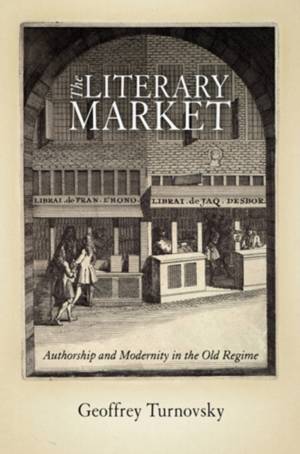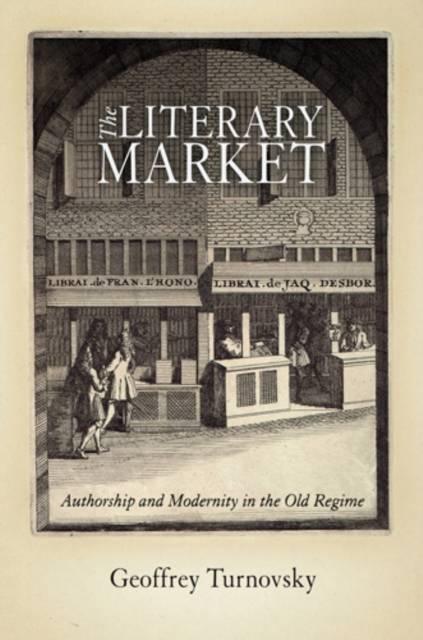
- Retrait gratuit dans votre magasin Club
- 7.000.000 titres dans notre catalogue
- Payer en toute sécurité
- Toujours un magasin près de chez vous
- Retrait gratuit dans votre magasin Club
- 7.000.0000 titres dans notre catalogue
- Payer en toute sécurité
- Toujours un magasin près de chez vous
100,95 €
+ 201 points
Description
A central theme in the history of Old Regime authorship highlights the opportunities offered by a growing book trade to writers seeking to free themselves from patrons and live "by the pen." Accounts of this passage from patronage to market have explored in far greater detail the opportunities themselves--the rising sums paid by publishers and the progression of laws protecting literary property--than how and why writers would have seized on them, no doubt because the choice to do so has seemed an obvious or natural one for writers assumed to prefer economic self-sufficiency over elite protection. In The Literary Market, Geoffrey Turnovsky claims that there was nothing obvious or natural about the choice. Writers had been involved in commercial book publication since the earliest days of the printing press, yet had not necessarily linked these activities with their freedom to think and write. The association of autonomy and professionalism was forged, not given. Analyzing the literary market as a key articulation of the association, Turnovsky explores how in eighteenth-century polemics a rhetoric of commercial authorship came to signify independence for intellectuals. He finds the roots of the connection not in the claims of entrepreneurial writers to rights and income but in a world to which that of the modern author has been contrasted: the aristocratic culture of the seventeenth century. Aristocratic culture, he argues, generated a disparaging view of the professional author as one defined by activities tainting him or her as greedy and arrogant and therefore unworthy of protection and socially isolated. The Literary Market examines the story of the "birth of the author" in terms of the revalorization of this negative trope in Enlightenment-era debates about the radically changing role of writers in society.
Spécifications
Parties prenantes
- Auteur(s) :
- Editeur:
Contenu
- Nombre de pages :
- 280
- Langue:
- Anglais
- Collection :
Caractéristiques
- EAN:
- 9780812241952
- Date de parution :
- 01-12-09
- Format:
- Livre relié
- Format numérique:
- Genaaid
- Dimensions :
- 163 mm x 236 mm
- Poids :
- 544 g

Les avis
Nous publions uniquement les avis qui respectent les conditions requises. Consultez nos conditions pour les avis.






